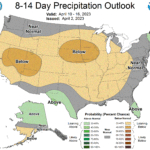The consequences of last week’s Appellate Court decision to uphold the lower court decision rejecting San Juan Capistrano’s tiered water rates because the method of deriving the costs was inconsistent with Proposition 218 are still ricocheting around the state.
Locally, the effect of the decision has not been felt. General managers for Fern Valley and Pine Cove water districts are reviewing it and conferring with their legal counsel.
Both Steve Erler, FVWD, and Jerry Holldber, PCWD, said they have not heard any questions or objections from their customers. Idyllwild Water District General Manger Tom Lynch was not available for comment.
“As I promised at the [rate] hearing, I will look in-depth at all of our costs for water production,” Holldber said. “I’ve asked District Engineer John Egan for guidance, too. But until we’re proven different, I feel good about our rates.”
At the beginning of April, PCWD raised its advanced minimum bimonthly payment and rates.
“The compliance with [Prop] 218 is pretty challenging,” Erler said. “That’s the reason we had an engineering firm do our rate study and legal counsel is reviewing it.” FVWD may put a rate increase on its May agenda.
The year-to-year water production and consumption for the Hill’s water districts can vary. For example, Idyllwild’s production for 2014 was nearly 18 percent less than in 2013 while Pine Cove’s usage increased 3.7 percent. But the reverse occurred between 2012 and 2013.
More importantly, the long-term trend for all three districts is declining use and greater conservation.
“Going back a couple of decades, our water totals appear to show a pretty steady decline in the average-daily usage per meter,” Holldber said.
PCWD and FVWD still offer rebates for installating water-saving devices, such as toilets. While IWD eliminated its program at the end of 2013, Kelly Clark, office manager, said it might be reconsidered. PCWD previously sold rain barrels to its customers. Holldber said another delivery of about 66 barrels will be arriving next month.
At the state level, Gov. Jerry Brown disagrees vehemently with the court decision and already has the state’s lawyers reviewing it.
The Association of California Water Agencies issued this statement last week: “Our initial assessment is this decision could tie the hands of water agencies implementing conservation-based pricing structures. It’s a serious concern, and it comes at a time when water agencies throughout the state need every tool available to manage through this historic drought and meet mandatory water-use reduction targets that will be adopted soon by the State Water Resources Control Board.
“…While the Appellate ourt did not pass judgment on the legality of these rate structures in general, it did impose constraints that could make it much harder for agencies to implement them.”
The Howard Jarvis Taxpayers Association has a very different view of the Appellate Court’s decision. In a Sunday column, Jon Coupal, HJTA president, wrote, “What is important to note about Proposition 218 is that it did not ban property-related fees but, rather, sought to return the imposition of fees like water, sewer and trash collection rates to the traditional concept of ‘cost of service’ … The cost to a property owner for a service should not exceed government’s cost to provide that service.
“In its ruling, the Court of Appeal concluded that ‘tiered’ water rates, without being justified under ‘cost of service’ principals, failed to comply with the constitutional mandates of Proposition 218. … rather than saying all tiered water rates were automatically unconstitutional, the court merely stated that, whatever the methodology used to impose water rates, they must be based on cost of service.”










